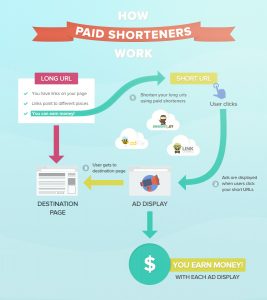Lots of managers try to hire employees who share Mark Twain’s view on work: “Find a job you enjoy doing, and you will never have to work a day in your life.”
But earning a living is important, too, so shouldn’t candidates prioritize pay and benefits as well?
According to an Academy of Management Journal article, hiring managers often have a significant bias against candidates who ask about pay and perks during interviews. Further, in evaluating people for positions, managers rate candidates who focus on the job higher than applicants who also inquire about benefits.
“People are complex and can have many motivations when applying for a job, including money and flexibility,” said Rellie Derfler-Rozin of the University of Maryland. “But our research shows that decision makers penalize candidates who express an interest in pay and benefits, assuming their motivations for going after that job are not pure.”
Employees motivated by work they enjoy (intrinsic motivation) and good pay, generous vacation time, and family-friendly policies (extrinsic motivations) benefit organizations, as well as the workers themselves, she said.
“I love doing research. But I love the flexibility, too, because I’m a mom with four children,” she said.
Derfler-Rozin wrote the article—”Motivation Purity Bias: Expression of Extrinsic Motivation Undermines Perceived Intrinsic Motivation and Engenders Bias in Selection Decisions”—with coauthor Marko Pitesa of Singapore Management University.
Their findings have broad implications for managers, who may be missing out on the best candidates by passing over prospective employees who express interest in compensation. Motivation purity bias also could have negative consequences on job seekers from lower economic backgrounds, who are more likely to need money, and on women, who are more likely to be concerned with flexible schedules and benefits, such as child care.
“Penalizing expressed extrinsic motivation is not only unfair to candidates, but also counterproductive from the standpoint of maximizing future employee performance,” the authors wrote.
Derfler-Rozin was inspired to delve into the topic when she and Pitesa were leading the PhD admission process at UMD and discussed lodging for visiting candidates with other faculty.
“We had a discussion as to whether they should stay in a not-as-nice hotel in College Park or in a hotel with a great location in Washington, DC, because we thought of DC as a good tool to attract students,” she recalled.
But other team members raised concerns.
“One of the concerns raised was that if the students are interested in topics, such as location, maybe they aren’t as interested in the program,” she said. “This discussion made us realize that we may all be automatically ‘penalizing’ intrinsic motivation when we think someone may also be motivated extrinsically.”
It didn’t take long for the authors to uncover a real-life example of motivation purity bias in hiring: Taylor Barnes was awaiting a second interview at a small start-up company. She emailed the hiring manager with a few questions about compensation, thinking that it doesn’t hurt to ask.
Barnes wrote: “I had another question that I wanted to ask you. If I do end up filling this position, how much do you think I’ll be getting paid an hour? Benefits will also be included, right? Sorry, I just thought I should ask now.”
The hiring manager’s blistering reply: “Your questions reveal that your priorities are not in sync with those of the company. At this time, we will not be following through with our meeting this Thursday. . . . We seek out those who go out of their way to seek challenges and new opportunities. We believe in hard work and perseverance in pursuit of company goals, as opposed to focusing on compensation. Our corporate culture may be unique in this way, but it is paramount that staff display intrinsic motivation and are proven as self-starters.”
Fortunately for Barnes, a cofounder of the startup followed up with her and learned her second interview had been canceled. The cofounder apologized and offered her a second interview.
To put their theory to the test, the authors set up several experiments. In one, they asked students to write fake cover letters in response to an ad for their dream job. Another group read the letters looking for extrinsic or intrinsic motivation cues. A third group acted as hiring managers, indicating whether they would hire a candidate based on his or her letter.
They determined that candidates who expressed high levels of motivation from pay and benefits were perceived as having lower intrinsic motivation for the work itself and as a result were 19% less likely to be hired.
In another experiment, a professional actor was recorded in different interview scenarios. In the interview in which the actor asked about salary and benefits, in addition to expressing high interest in the job itself, hiring managers were more likely to rate him lower on intrinsic motivation, leading to a 23% lesser likelihood to offer him a job.
Derfler-Rozin is an advocate of organizations taking pay and perks out of the hiring equation, encouraging managers to provide job candidates with that information up front. She acknowledged that transparency about money, in particular, is an uphill battle.
“Managers are concerned that talking about salaries up front removes a valuable bargaining chip,” she said. “But benefits that are readily available to employees should be transparent.”
As part of her work, Derfler-Rozin teaches MBA students to negotiate. Her nuts-and-bolts advice to new grads and seasoned executives interviewing for jobs is the same: “Don’t be the first to bring up pay. Don’t start negotiating until you know that they want you.”
This article originally appeared in Academy of Management Insights and is reprinted with permission.
Fast Company , Read Full Story
(57)








